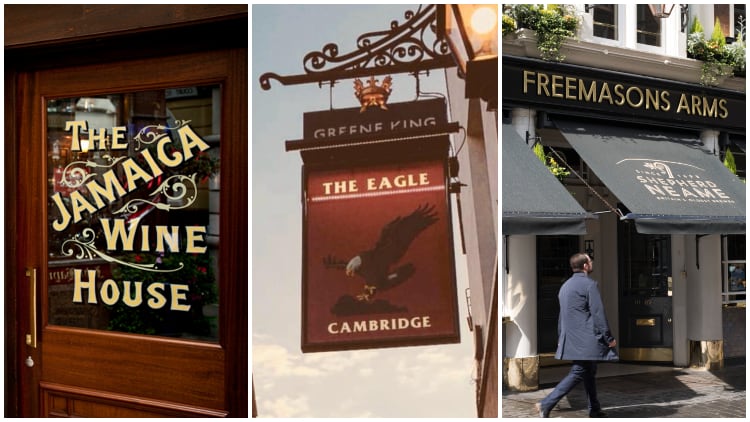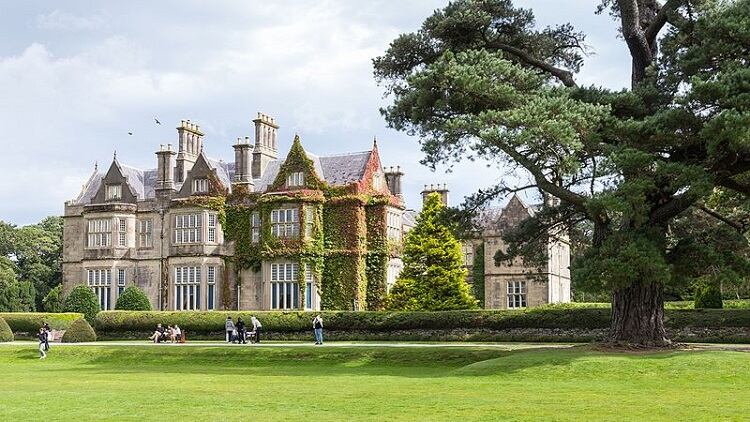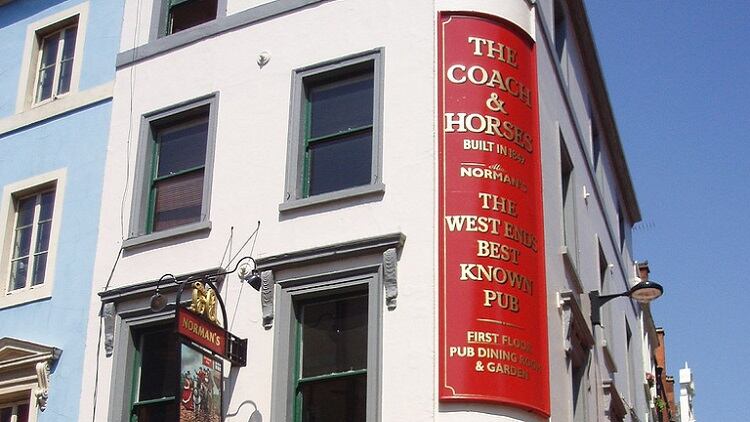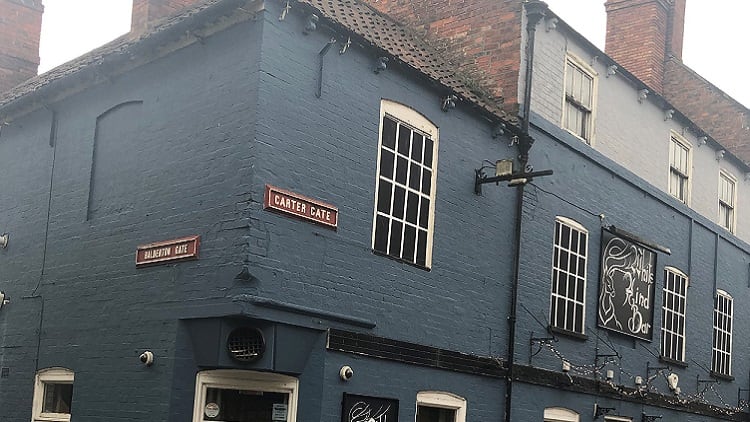Did you know King John penned the first draft of the Magna Carta on the back of a beer mat while getting off his pickle down the pub? You wouldn’t, because it’s a lie, but that’s not to say pubs haven’t played a huge part in shaping British culture.
Angel, Elephant & Castle, Manor House, Royal Oak and Swiss Cottage tube stations were all named after nearby pubs, while the Great Train Robbery, the Communist Manifesto and The Beatles’ career all have roots at the humble British pub.
At some point, each of these pubs played a pivotal role in shaping the world we live in:
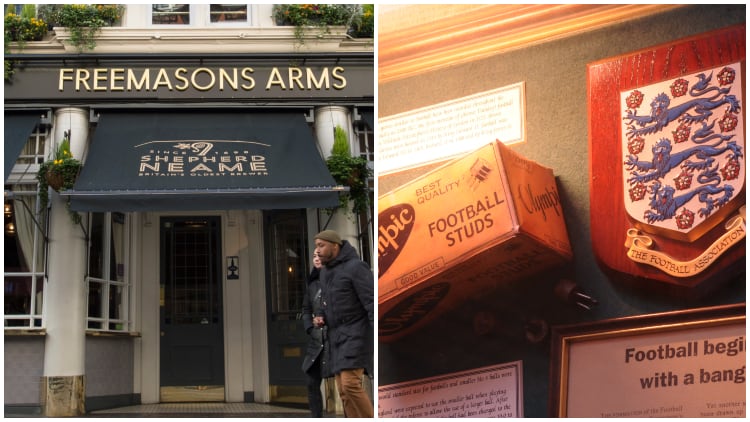
The Freemasons Arms, Covent Garden, London
A genuine claim to being the spiritual home of football, it was here, in 1863, that members of the nascent Football Association met to agree a universal set of rules for the beautiful game – controversially choosing not to introduce VAR.
The Skirrid Mountain Inn, Abergavenny, Wales
Reputed to be the oldest pub in Wales, it’s believed around 200 convicts were hanged over the stairwell at this Brecon Beacons inn. It was also a rallying point for Owain Glyndwr – the last native Welshman to hold the title Prince of Wales – and his men during their revolt against English rule in Wales in the 15th century.
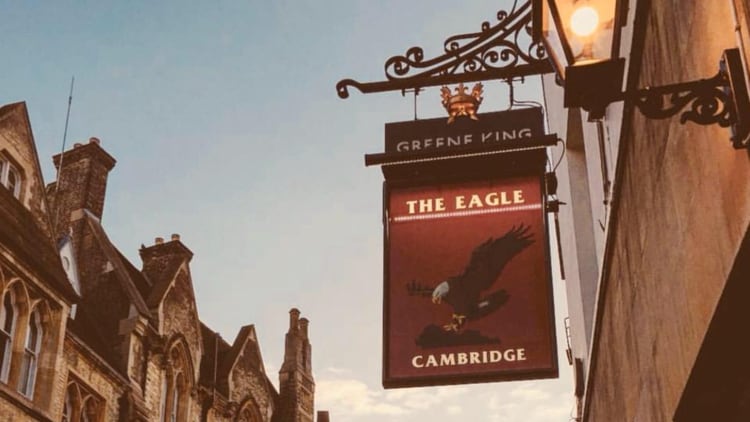
The Eagle, Cambridge
This 16th century coaching inn is renowned for being the spot where Francis Crick and James Watson announced they had discovered the structure of DNA in 1953.
The Talbot Hotel, Oundle, Northamptonshire
Not the first, or last, example of someone feeling off their head after a stint in a pub; the main staircase at the Talbot was descended by Mary Queen of Scots on the day of her execution in 1587.
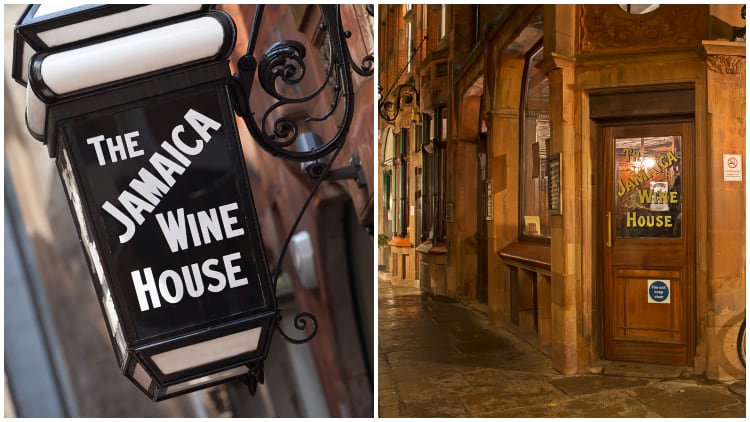
The Jamaica Wine House, City of London
Pre-dating Pret and ahead of the Costa curve; the ‘Jampot’ dates back to 1652 when Pasqua Rosée opened London’s first coffee shop on the site. Legend has it that staff regularly misspelled his name on takeaway cups and pioneered milk foaming.
The Jacaranda, Liverpool, Merseyside
The Liverpool institution, opened in 1958, was a regular haunt of The Beatles during their student days. Then known as ‘The Silver Beetles’, they launched their genre-defining career at the Jacaranda, then owned by the band’s first manager, Allan Williams.
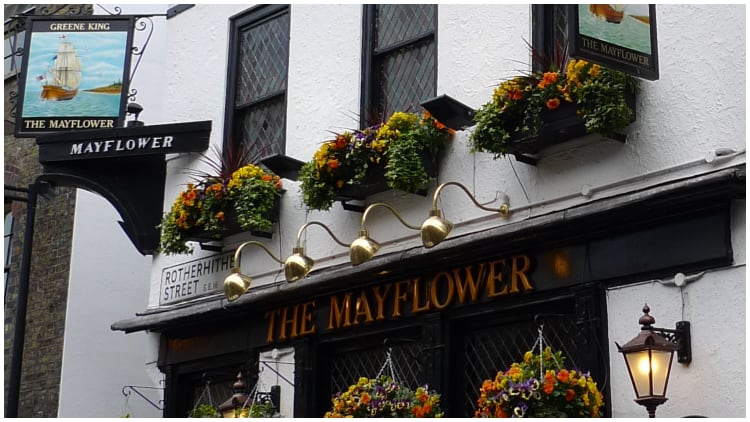
The Mayflower, Rotherhithe, London
Legend has it that in 1620, the captain of The Mayflower, Christopher Jones, moored his Virginia-bound ship at this Rotherhithe pub to avoid paying taxes further down river. Almost 400 years later, it's estimated that 10m living Americans, and as many as 35m people worldwide, are descended from the Pilgrims that arrived in ‘The New World’ on board.
The Olde Coach House, Ashby St Ledgers, Northamptonshire
The room above a gatehouse on the Catesby Estate, where this pub now stands, was used by Guy Fawkes and co to engineer the ultimately ill-fated Gunpowder Plot to blow up parliament in 1605.
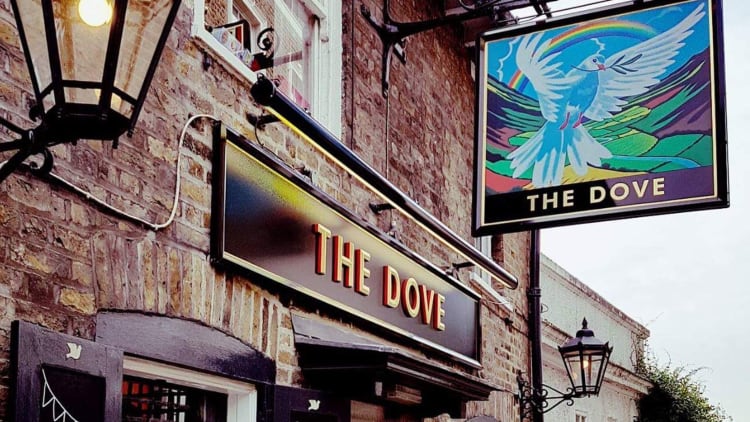
The Dove, Hammersmith, London
Another pub with musical history, The Dove in west London – also home to the capital’s smallest bar – is where the words of Rule Britannia were written.
The White Hart, Overton, Hampshire
On 5 November 1805, Lt John Lapenotiere changed horses at the pub as he was carrying the news of the Battle of Trafalgar, and the death of Lord Nelson, from Falmouth to the Admiralty in London.
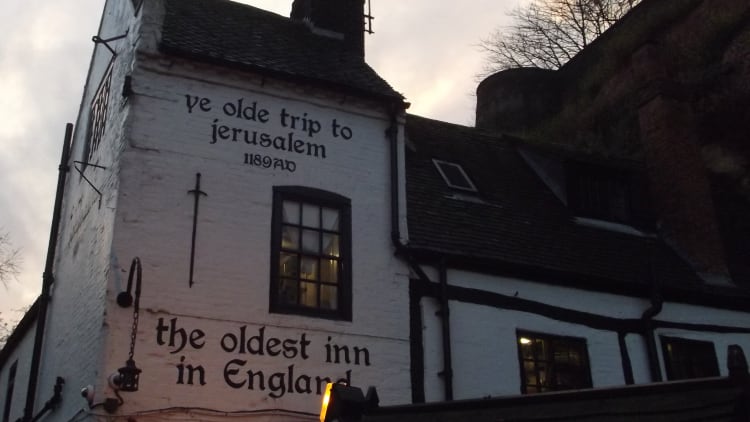
Ye Olde Trip to Jerusalem, Nottingham
Built into the rock beneath Nottingham Castle – a favoured stronghold of Richard the Lionheart – legend has it that this 12th century brewhouse was a regular haunt for medieval warriors bound for the Crusades.
The George & Dragon, Yarm, North Yorkshire
The promoters of the Stockton and Darlington Railway met here to hatch plans for the construction of what would become the first public railway in the world.
The Drayton Court Hotel, West Ealing, London
Vietnamese leader Ho Chi Minh – who fronted the Vietnamese nationalist movement for more than three decades, fighting against Japanese, French and American incursions in south-east Asia – worked as a kitchen porter as this west London hotel after arriving in the capital in 1913.
The White Hart Royal, Moreton-in-Marsh, Gloucestershire
King Charles I stayed over at the hotel in 1644, leaving without paying his bill. Historians still debate whether or not this was a contributing factor in parliament’s decision to execute him five years later.

